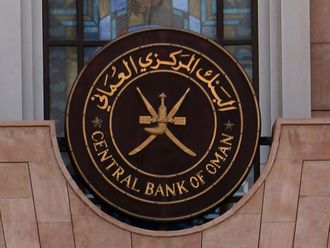London: European stocks had their biggest weekly decline in eight weeks as concern mounted that peripheral euro area countries can't repay their debt and North Korea fired shells on South Korea for the first time since the 1950-53 war.
Banks and insurers led the decline as investors waited to find out how much Ireland will borrow from the European bailout fund and as the cost of insuring Portuguese government debt rose to a record. Bank of Ireland tumbled 45 per cent, the largest weekly drop in the benchmark Stoxx Europe 600 Index. Banco Santander plunged 12 per cent and BNP Paribas lost 8.5 per cent.
The benchmark Stoxx 600 fell 1.1 per cent this past week, the biggest weekly drop since September.
The gauge has still rallied 15 per cent since its low this year in May as investors speculated that the world economy will grow after companies reported better-than-estimated results and central banks from the US to Japan announced more stimulus measures to prop up the economic recovery.
"After Ireland, Portugal is a likely candidate for aid with Spain close behind," John Plassard, head of European equities at Louis Capital Markets, said.
Geopolitical issues
"Amid these problems, the geopolitical problem between the two Koreas is the cherry on the cake in a bad week."
North Korea threatened a "shower of terrifying fire" as the US sent the nuclear-powered aircraft carrier USS Washington to the Yellow Sea for joint military exercises with South Korea.
On November 23, North Korea shelled a South Korean fishing community and military base on Yeonpyeong island with highly inflammable ammunition that killed four people, including two civilian construction workers, blew the windows out of a school and torched houses.
Increased pressure
In Europe, the cost of insuring Portuguese and Spanish government debt against default rose to record levels, according to data provider CMA.
Portuguese Finance Minister Fernando Teixeira dos Santos said European Union governments can't impose a bailout on his country even as speculation mounts that Portugal will eventually have to ask for one.
The majority of euro region governments and the European Central Bank are putting pressure on Portugal to accept a bailout to stop contagion spreading to Spain, the Financial Times Deutschland reported on Friday.
Irish officials raced to complete a deal for an international aid package before financial markets reopen this week with talks focusing on the status of bondholders in Ireland's largest banks amid concern that the government will force holders of such debt to share the cost of bailing out its financial system. Euro area finance ministers plan to finalise an agreement on November 28, a European Union official said on condition of anonymity.
Bundesbank President Axel Weber, who is also a European Central Bank Governing Council member, said the EU bailout fund has enough money to calm markets and that there's no alternative to the European currency union.
"I think we can rule out" the pessimistic scenario that the fund could be exhausted, Weber said in a panel discussion in Berlin on Thursday.
"We'll do everything to safeguard the existence of the euro," he added.
Bank of Ireland lost 45 per cent amid concern that the government will force some of the cost of bailing out the country's banks on senior bondholders.
The bank has 5.4 billion euros (Dh26.3 billion) of senior unsecured debt and another 5.9 billion euros of government-guaranteed bonds, according to Bloomberg data.
Two people familiar with the situation said the lender may end up in majority state control as the government injects more capital into the bank.
Banco Santander, Spain's largest bank, shed 12 per cent after calling on the European Commission to reject plans by global regulators that would force lenders to accrue extra capital during boom times.
The bank urged the commission to either take a different approach than proposed by the Basel Committee on Banking Supervision, or scrap the idea entirely. Italy's Mediobanca retreated 9.9 per cent, while France's BNP Paribas declined 8.5 per cent.
- 5.4b euros unsecured debt owed by Bank of Ireland
- 45% drop in stocks for Bank of Ireland
- 5.9b euros of government bonds owed in debt












